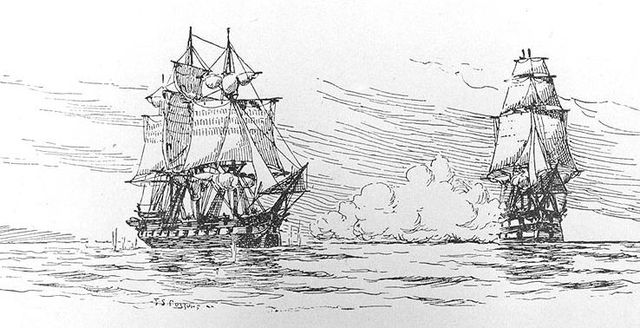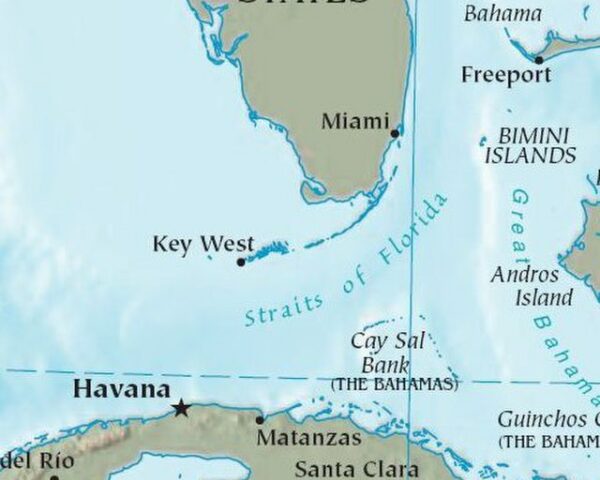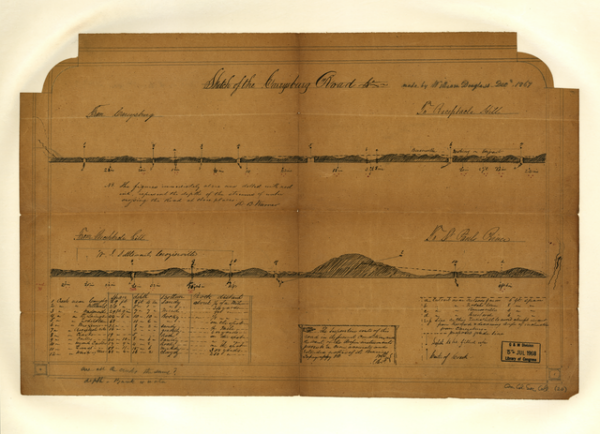On the afternoon of June 22, 1807, off the coast of Norfolk, Virginia, a violent encounter between the British warship HMS Leopard and the American frigate USS Chesapeake ignited a firestorm of national outrage and set the United States on a slow march toward war with Britain. The incident—known as the Chesapeake–Leopard affair—not only exposed the fragile state of American naval preparedness but also intensified longstanding tensions over British impressment of American sailors and violations of U.S. sovereignty.
The affair began with a deceptively routine request. As the Chesapeake, under the command of Commodore James Barron, set sail for the Mediterranean, the Leopard approached under peaceful pretenses and hailed the American ship, requesting to deliver dispatches. Barron allowed the Leopard to come alongside. But instead of diplomatic correspondence, the British delivered a demand: permission to search the Chesapeake for Royal Navy deserters allegedly serving aboard the American vessel.
Barron refused. The British response was immediate and violent. Without further warning, the Leopard opened fire, unleashing a broadside into the unprepared Chesapeake. The American frigate, lacking powder charges in its cannons and woefully underprepared for combat, offered little resistance. After suffering three deaths and eighteen wounded among his crew, Barron struck his colors and surrendered. A British boarding party seized four sailors—three of them American citizens—and departed. The Chesapeake limped back to port in disgrace.
The assault shocked the American public and humiliated the Jefferson administration. Newspapers across the country erupted in fury, denouncing the British action as an intolerable affront to American honor and independence. Even as President Thomas Jefferson attempted to maintain a posture of diplomatic restraint, public sentiment boiled over. Calls for war echoed through Congress and among the citizenry, many of whom viewed the attack as a deliberate insult and evidence of British contempt for American sovereignty.
Yet Jefferson, averse to war and convinced of the need for economic leverage over military confrontation, responded with a strategy of commercial pressure. He expelled all British warships from American waters and demanded full satisfaction from London. Britain, while expressing regret, refused to disavow the principles behind the attack, insisting on its right to search ships for deserters—a practice tied to the broader system of impressment, whereby British captains routinely forced sailors into service, often with little regard for citizenship.
The Chesapeake–Leopard affair became a touchstone for the deeper grievances festering between the two nations: British interference with American maritime commerce, disrespect for U.S. neutrality, and the humiliation of being treated as a lesser power. Though war was averted in 1807, the wounds of the Chesapeake incident never fully healed. Jefferson’s subsequent Embargo Act—an attempt to use economic coercion to force British and French respect for American neutrality—only worsened domestic discontent and crippled the U.S. economy.
In the years that followed, the memory of the Leopard’s cannon fire lingered as a symbol of British arrogance and American vulnerability. When the War of 1812 finally broke out five years later, the Chesapeake–Leopard affair was still fresh in the minds of many Americans—proof that patient diplomacy had failed and that national honor demanded a more forceful response.
The incident exposed not just the immediate dangers of British naval policy, but also the limits of Jeffersonian restraint in a world where neutrality offered no refuge from imperial powers. It marked a pivotal moment in early American foreign policy—a brutal reminder that independence, if not backed by power, could be scorned on the high seas.






